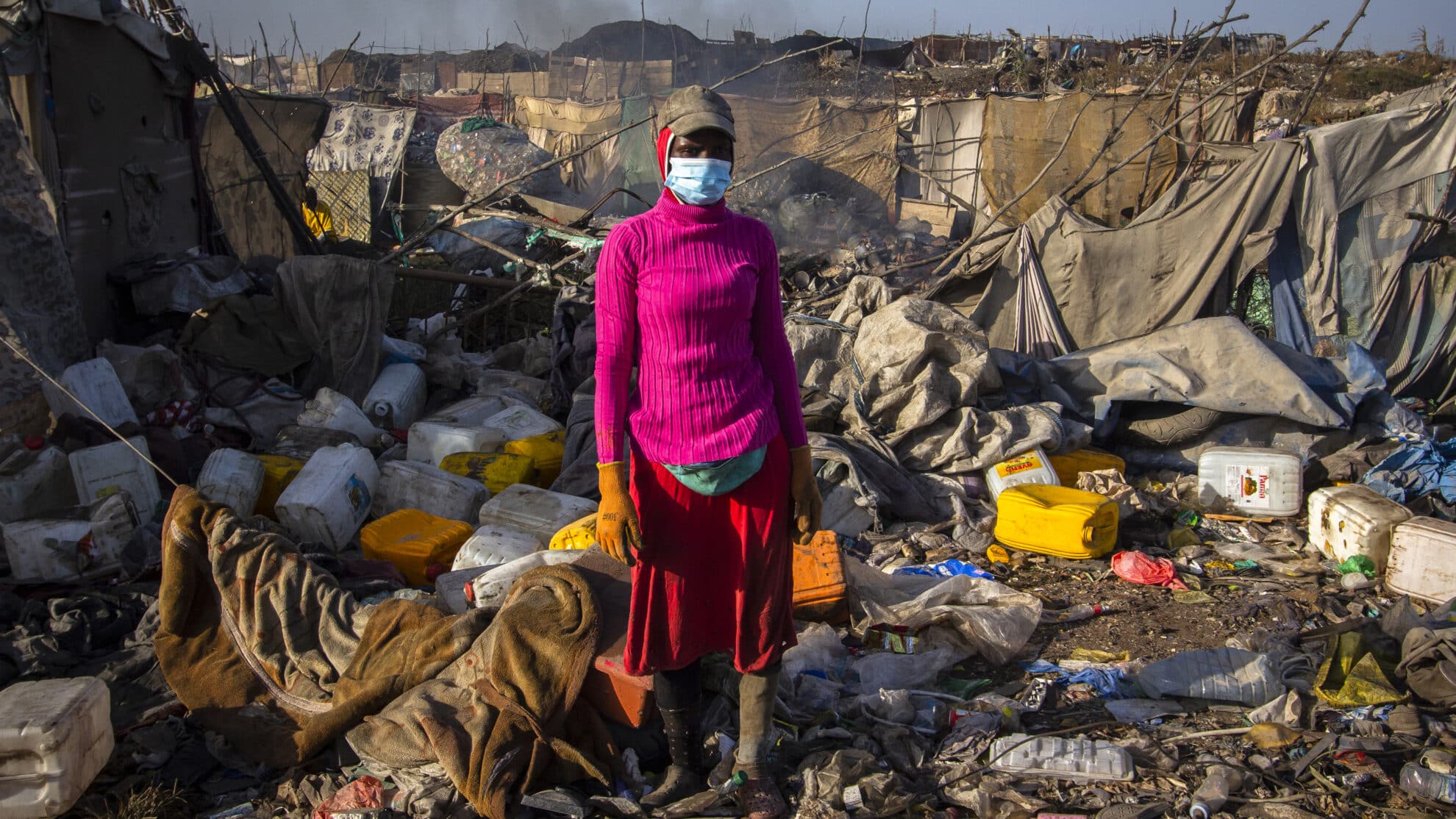The Project for the Promotion of Integrated Management and Economy of Solid Waste (PROMOGED) aims to improve the management of solid waste in the country and, as part of that, to restructure and eventually close the Mbeubeuss dump in Dakar. PROMOGED is financed by the World Bank, the Spanish Agency for International Development Cooperation (AECID) and the French Development Agency (AFD), and is part of the government’s zero waste programme.
On June 24, 2021, during the official launch of the project, the President of the Republic, Macky Sall, sought to reassure waste pickers at the dump, who had mobilized and demanded to be included. He told them: "I would like to reassure waste pickers working on the site that their interests will be fully taken into account, particularly by ensuring their participation in waste management and ensuring that their working conditions comply with standards of hygiene, health, security and safety. This is a project that is close to my heart and is part of the Emerging Senegal Plan."
This commitment from the highest political authority, while very important in the context of the transformation of the dumpsite that is underway, does not, however, provide reassurances: what is the capacity of the project to support the inclusion of more than 2,000 waste pickers into a new waste management model that does not build on the existing system or considers the roles waste pickers play in it? We should already be planning and implementing, at the level of Mbeubeuss and beyond, an inclusive, gradual and transitional system of support for the changes to come, guaranteeing maximum security for all workers.
Mbeubeuss opened in the 1970s and covers an area of 115 hectares. The plan is to rehabilitate the Mbeubeuss landfill and to convert part of it into a sorting, transfer and recovery center for recyclables, reducing the surface area to 30 hectares. The rest will be used as spaces for leisure and sports, following the examples of dumps in Tunis and Algiers.
Despite these threats to their livelihoods, waste pickers, through their organization called Bokk Diom, are demonstrating their capacity for resilience and adaptation by providing responses to be considered in the proposed model of waste recovery, taking into account the socio-economic dimension of the project.
Bokk Diom is creating a cooperative, supported by the International Labour Organization (ILO) and WIEGO, to improve their operational practices and technical skills and to benefit from social security schemes. WIEGO is also working with Bokk Diom to identify potential areas where they could participate within the waste management chain following the restructuring of the dump.
Similarly, through the recent collaboration with Senegal's most important trade union federation, the National Confederation of Senegalese Workers (CNTS), the organization intends to establish the first national union of waste pickers to obtain recognition of their occupation and work-related rights.
Mouhamadou Wade, the Secretary General of Bokk Diom, told me about the determination of the waste pickers to secure their livelihoods: "Every day leads us to firmly believe that we are the ones who must and can change the course of the project, no one else."
All of this must raise awareness among decision-makers, technical services, local authorities, unions, cooperatives and NGOs about the effects of the prejudicial neglect of the knowledge of the disadvantaged, in this case the waste pickers. This situation requires revisiting the rationale and the goals of new environmental protection policies in Senegal so that stakeholders will be at the heart of its management. The sustainability strategy should be based on the coordination and integration of waste pickers in local and national development strategies in order to promote collaborative approaches in the provision of services, particularly in the waste sector – an area that was identified as a development priority.
In short, the government should acknowledge waste pickers as part of the solution to the recurrent problem of waste management in Senegal and it must prioritize their inclusion in any plans for the future.
